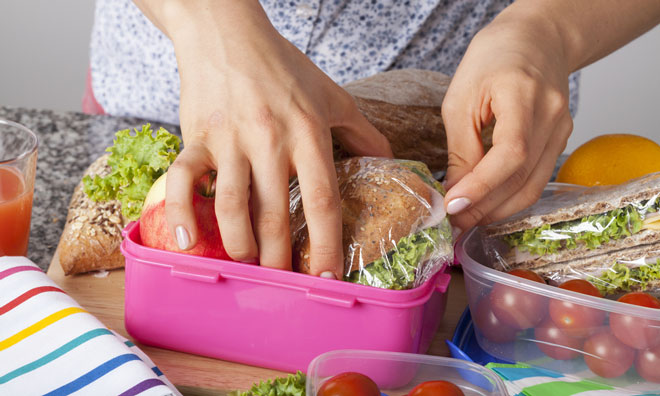Over a third of parents guilty that lunchboxes are ‘not healthy enough’
- Like
- Digg
- Del
- Tumblr
- VKontakte
- Buffer
- Love This
- Odnoklassniki
- Meneame
- Blogger
- Amazon
- Yahoo Mail
- Gmail
- AOL
- Newsvine
- HackerNews
- Evernote
- MySpace
- Mail.ru
- Viadeo
- Line
- Comments
- Yummly
- SMS
- Viber
- Telegram
- Subscribe
- Skype
- Facebook Messenger
- Kakao
- LiveJournal
- Yammer
- Edgar
- Fintel
- Mix
- Instapaper
- Copy Link
Posted: 24 August 2017 | Charlie Kortens | No comments yet
Parents in the UK are struggling to make healthy choices for their children with more than a third (36%) admitting they feel guilty that they aren’t providing a healthy enough school lunchbox, according to new independent research commissioned by Tetra Pak.


One in four parents find it difficult to choose healthy food for their child’s lunchbox, and more than one-third (36%) of parents said they often choose convenience over health when making these purchasing decisions. At the same time, parents are subjected to pester power, with half (52%) saying that their child decides what food and drink is included in their lunchbox – and half also saying that their child is influenced by the contents of their peers’ lunchboxes. The research compiled the views of 1,000 parents with primary school age children.
Tetra Pak commissioned the research to explore the trends influencing the content of children’s lunchboxes, and examine the barriers faced by industry, parents, schools and government in promoting healthy childhood nutrition.
Stefan Fageräng, Managing Director, Tetra Pak North-West Europe, said: “While the government’s School Food Standards ensure that school-provided lunches are healthy, there is little guidance available for parents creating healthy lunchboxes. They face a daily challenge in selecting nutritious, healthy and filling items for their children, and more than half of those surveyed think that there should be more guidance on how to provide healthy food and drink in lunchboxes. We need government, schools, food and drinks producers and retailers to work closer together with parents to support and help them make sound nutritional choices for their children.”
Greater guidance can be built around the existing framework of the Eatwell Guide, such as a proportional balance of each of the different food groups, the need for hydration as well as what children and their parents should perhaps avoid adding to the lunchbox as these should only be eaten infrequently and in small amounts.
What support do parents need from retailers and producers?
“Our research has found that parents would like to make healthier choices when shopping for lunchboxes, and that there are clear opportunities for retailers and producers to support parents in making these decisions,” continues Fageräng. “Over 60% of parents said that they would find a dedicated lunchbox aisle or section in a supermarket helpful in making healthy decisions, and implementing this would go a long way towards meeting parents’ desire for convenience, variety, and good nutrition for their kids.”
“Lunch clubs, breakfast clubs, afterschool activities and even the national curriculum should all be used to teach children about healthy nutrition, so that children can pass this message on and better influence what their parents purchase for them in future.”
Kyri Shiamtanis, registered dietitian who worked with Tetra Pak to commission the research, said: “It is vital that we teach children about nutrition at an early age, and that they learn how their diet can support them in achieving success throughout life. As Tetra Pak’s research shows, parents are often influenced by what their children want to eat, so children need to be supported to make healthier choices. More than half (57%) of parents said that they often try to choose healthy items for their child’s lunchbox, before realising that the product is not as healthy as they first thought.”
Food and drink manufacturers have an opportunity to better support parents in making healthier choices. Almost one in ten (9%) parents said they do not understand what on-pack nutritional information means. To tackle this, producers can ensure that they are clearly communicating the health benefits of their products. This could include clearer labelling on appropriate portion sizes, information on the role that the nutrients within the product have in promoting healthy growth and development among children, or even ‘Good for lunchboxes’ branding.
The findings point to areas where producers could provide more support. Nearly a third (31%) of those parents surveyed stated that finding variety was the most challenging aspect of preparing a school lunch. Producers could look to offer more varied ranges in order to ease the burden on parents, particularly given the importance of consuming a variety of food and drink throughout the day and the week as part of a balanced diet.









